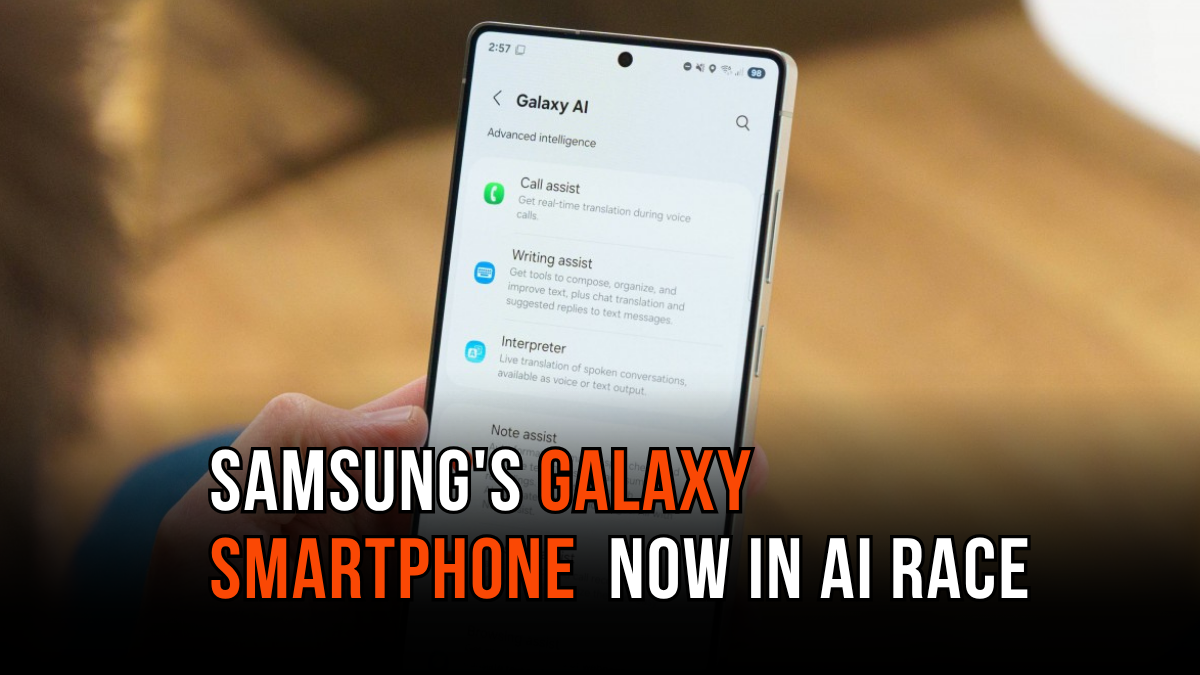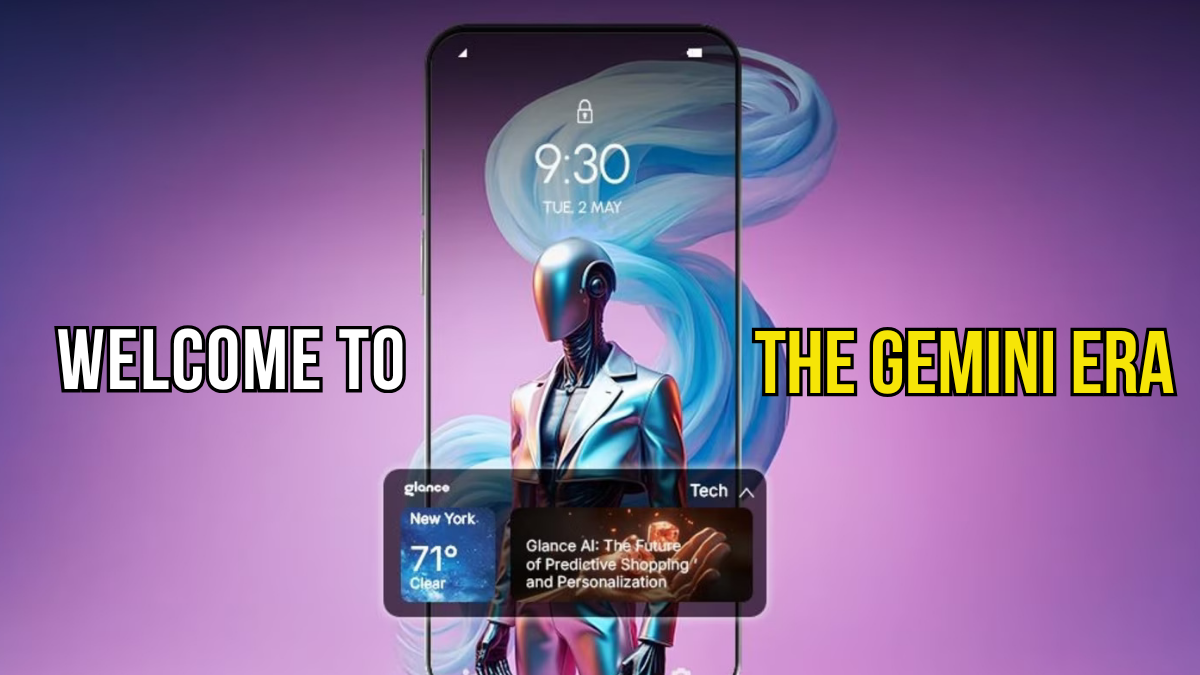Samsung’s Galaxy AI revolution started with the Galaxy S24 series launch last year, establishing the tech giant as a serious contender in the smartphone AI race. But the company isn’t content to rely solely on Google’s Gemini platform. Samsung is actively exploring partnerships with multiple AI vendors to give users more diverse and powerful AI experiences.
This strategic shift signals Samsung’s commitment to offering cutting-edge AI capabilities while maintaining flexibility in its technology partnerships. Rather than putting all its eggs in one basket, the company is positioning itself to leverage the best AI solutions available across different providers.

The move comes as smartphone AI features become increasingly important to consumers, with capabilities ranging from photo enhancement and language translation to personalized assistance and creative tools. Samsung’s willingness to diversify its AI partnerships could give it a significant competitive advantage in the rapidly evolving smartphone market.
Samsung’s Multi-Vendor AI Strategy Takes Shape
Choi Won-Joon, president and chief operating officer of Samsung’s mobile division, recently revealed the company’s open approach to AI partnerships. “We’re talking to multiple vendors,” Choi explained. “As long as these AI agents are competitive and can provide the best user experiences, we are open to any AI agent out there.”
This philosophy represents a significant departure from the exclusive partnership model many tech companies pursue. Instead of binding itself to a single AI provider, Samsung is evaluating options based on performance and user value.
The company is currently in discussions with both OpenAI and Perplexity to integrate their respective AI services into upcoming smartphones. These partnerships would likely debut with the Galaxy S26 family, giving Samsung users access to a broader range of AI capabilities than competitors relying on single providers.
OpenAI and Perplexity Enter the Mix
Samsung’s conversations with OpenAI could bring ChatGPT integration directly to Galaxy devices. This would give users access to one of the most advanced conversational AI systems available, potentially enhancing everything from voice assistants to creative writing tools.
The Perplexity partnership appears to be moving faster, with reports suggesting Samsung is nearing a deal that includes both investment and integration. Perplexity’s strength in AI-powered search and information retrieval could complement Samsung’s existing Galaxy AI features perfectly.
Unlike the potential OpenAI partnership, Samsung’s discussions with Perplexity reportedly include an investment component, suggesting deeper strategic alignment between the companies.
What This Means for Galaxy Users
Samsung’s multi-vendor approach could deliver several key benefits to Galaxy smartphone users. Rather than being limited to one AI system’s strengths and weaknesses, users might access different AI tools optimized for specific tasks.
For example, users might leverage Google’s Gemini for photo editing and organization, OpenAI’s technology for creative writing and complex conversations, and Perplexity for research and information gathering. This specialization could provide superior results compared to relying on a single AI system for all tasks.
The approach also provides Samsung with negotiating leverage and reduces dependency on any single AI provider. If one partnership becomes less favorable or a provider’s technology falls behind, Samsung can shift emphasis to other partners without completely rebuilding its AI ecosystem.
Enhanced Competition Drives Innovation
Samsung’s strategy could accelerate AI innovation across the smartphone industry. By creating competition between AI providers for integration into Galaxy devices, Samsung incentivizes each company to deliver their best capabilities and most competitive terms.
This competitive dynamic benefits consumers through faster feature development, better performance, and potentially lower costs as AI providers compete for Samsung’s partnership.
Challenges and Considerations
While Samsung’s multi-vendor strategy offers significant advantages, it also presents unique challenges. Integrating multiple AI systems seamlessly requires careful coordination to ensure consistent user experiences across different features and applications.
Users might encounter varying interface designs, response patterns, or capabilities depending on which AI system powers specific features. Samsung will need to create unified experiences that mask these underlying differences while maximizing each system’s strengths.
Privacy and data handling policies may also vary between AI providers, requiring Samsung to establish consistent standards and clear communication about how user data is processed across different AI partnerships.
Technical Integration Complexity
Managing multiple AI partnerships increases technical complexity significantly. Samsung’s development teams must maintain compatibility with several different AI platforms, each with its own APIs, update cycles, and technical requirements.
This complexity could slow feature rollouts or create potential points of failure if one AI provider experiences technical issues. Samsung will need robust fallback systems and careful quality assurance processes to maintain reliability.

Industry Impact and Competitive Response
Samsung’s multi-vendor AI approach could influence how other smartphone manufacturers structure their AI partnerships. Companies like Apple, which relies heavily on its own AI development supplemented by strategic partnerships, might reconsider their strategies.
The move also validates the importance of AI differentiation in smartphones. As hardware improvements become more incremental, AI capabilities increasingly drive consumer purchasing decisions and brand loyalty.
Choi’s positive comments about Apple’s rumored entry into foldable smartphones suggest Samsung views increased competition as beneficial for the entire industry, likely applying the same philosophy to AI development.
Looking Ahead: The Galaxy S26 and Beyond
The Galaxy S26 series will likely showcase Samsung’s diversified AI strategy for the first time. Users can expect enhanced AI capabilities across multiple use cases, potentially including improved creative tools, more powerful search functionality, and more natural conversational interfaces.
Samsung is also evaluating both Snapdragon 8 Elite 2 and Exynos 2600 processors for the Galaxy S26 range, suggesting the company wants flexibility in hardware choices to support its diverse AI partnerships effectively.
The success of Samsung’s multi-vendor approach could establish a new industry standard for smartphone AI integration, moving away from exclusive partnerships toward more flexible, performance-driven relationships.
The Future of Smartphone AI Partnerships
Samsung’s strategy represents a maturation of the smartphone AI market. Rather than rushing to secure exclusive partnerships, the company is taking a measured approach focused on delivering the best possible user experiences through strategic flexibility.
This approach acknowledges that the AI landscape remains rapidly evolving, with different providers excelling in different areas. By maintaining relationships with multiple AI companies, Samsung positions itself to incorporate breakthrough technologies regardless of their source.
The strategy also reflects growing consumer sophistication around AI features. Users increasingly understand different AI systems’ strengths and may prefer devices that offer access to multiple specialized tools rather than one general-purpose system.
As AI becomes more central to smartphone functionality, Samsung’s multi-vendor approach could provide the competitive advantage needed to maintain its position as a leading Android manufacturer while pushing the entire industry toward more innovative and user-focused AI implementations.
FAQs: Frequently Asked Questions
1. Why is Samsung exploring AI partnerships beyond Google Gemini?
Samsung aims to diversify its AI capabilities and provide more innovative and user-focused solutions for Galaxy phone users. By collaborating with other AI leaders like OpenAI and Perplexity, Samsung seeks to enhance its competitive edge and deliver more comprehensive AI functionality.
2. What benefits will this multi-vendor approach bring to Galaxy devices?
A multi-vendor approach allows Samsung to integrate a variety of AI technologies, offering advanced features, improved performance, and a richer user experience. This can set Galaxy devices apart from competitors by providing more versatile and holistic AI-driven services.
3. How will users be impacted by these AI collaborations?
Users can expect more dynamic and personalized AI-based features on Galaxy phones. These innovations are likely to improve functionality in areas like voice assistance, contextual app recommendations, and intelligent photo or text processing.
4. Are other Android manufacturers adopting similar strategies?
While other manufacturers may explore different AI partnerships, Samsung’s proactive step toward a multi-vendor AI strategy demonstrates its commitment to staying ahead in the competitive smartphone market through cutting-edge technology integration.
5. When can users expect these new AI features on Samsung devices?
Samsung has not provided a specific timeline yet. However, as discussions with OpenAI and Perplexity progress, these features could become available in upcoming Galaxy models within the next few product cycles.
For More Information Click HERE
